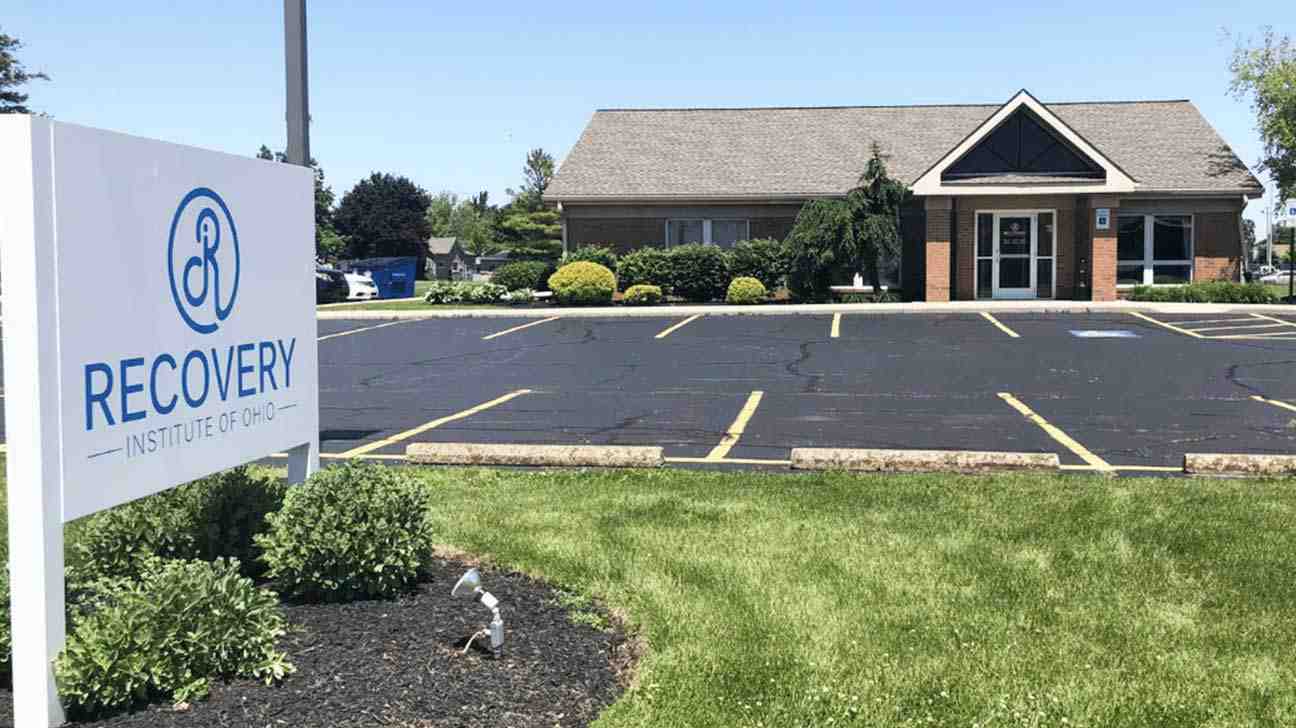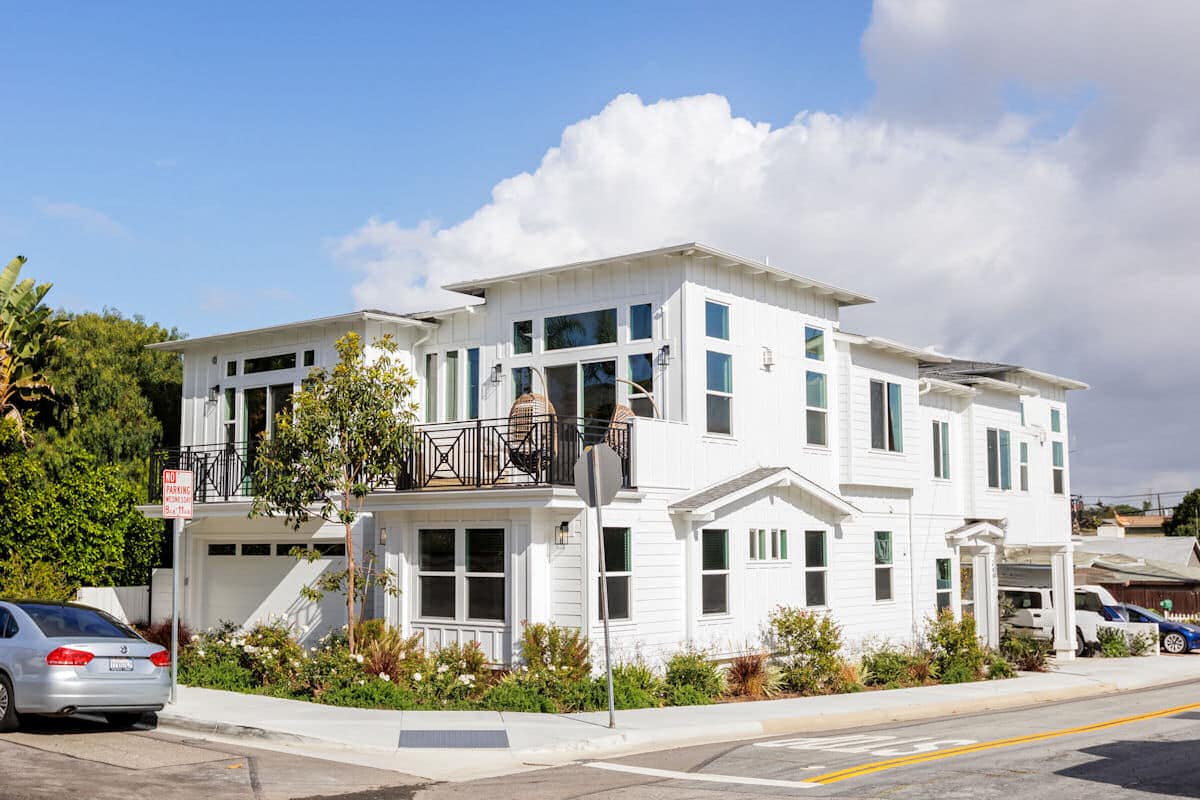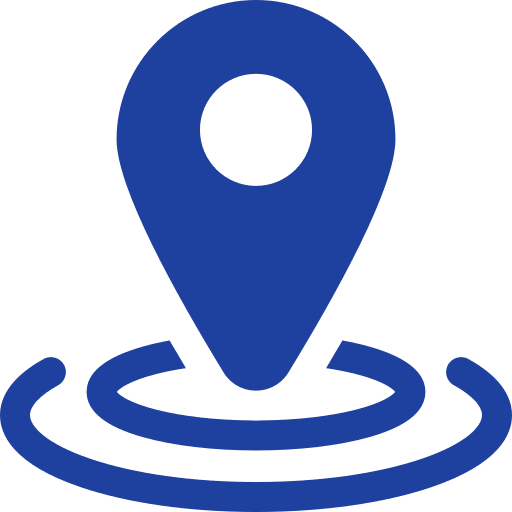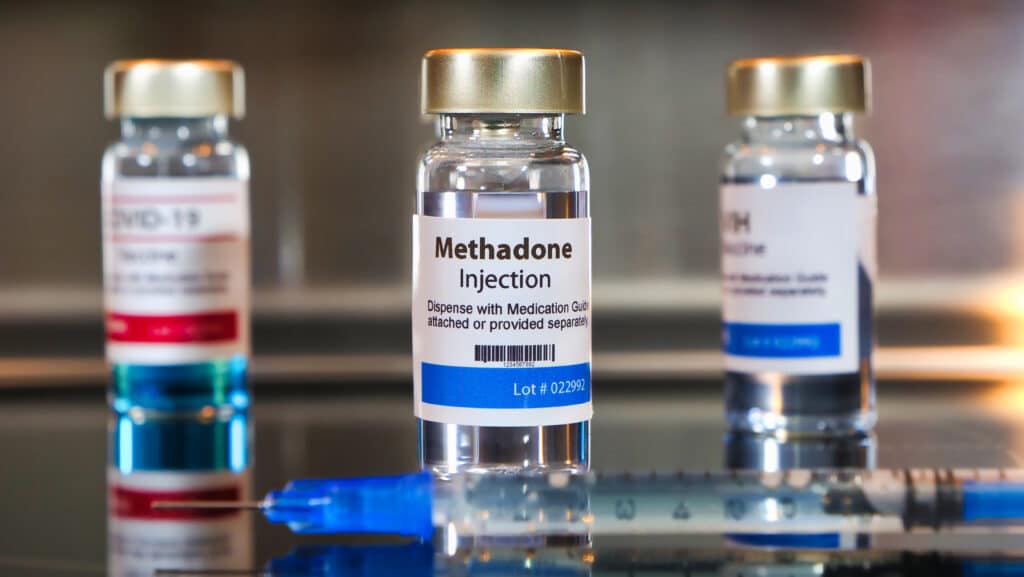
Finding Help for Opioid Use Disorder Starts Here
Methadone programs near me provide life-saving treatment for individuals struggling with opioid use disorder (OUD). If you or a loved one needs help, here are some quick steps to find a certified clinic:
- Use an online directory like SAMHSA’s to search by location.
- Call your health insurance company to find covered treatment centers.
- Ask your primary care physician for a referral to a local clinic.
- Contact a 24/7 helpline to connect with resources immediately.
Methadone is an FDA-approved medication that has been used to treat opioid addiction for nearly 50 years. It is dispensed through specialized clinics called Opioid Treatment Programs (OTPs), which combine medication with comprehensive support.
What Methadone Treatment Offers:
- Reduces opioid cravings and withdrawal symptoms.
- Provides daily, supervised medication in a safe environment.
- Includes counseling, behavioral therapy, and medical support.
- Stabilizes brain chemistry, allowing you to focus on recovery.
Despite its proven effectiveness, only a fraction of people with OUD receive this type of care. Finding the right program is key to lasting recovery. At Addiction Helpline America, we connect you with certified methadone programs near me, answer your questions confidentially, and support you on your journey.
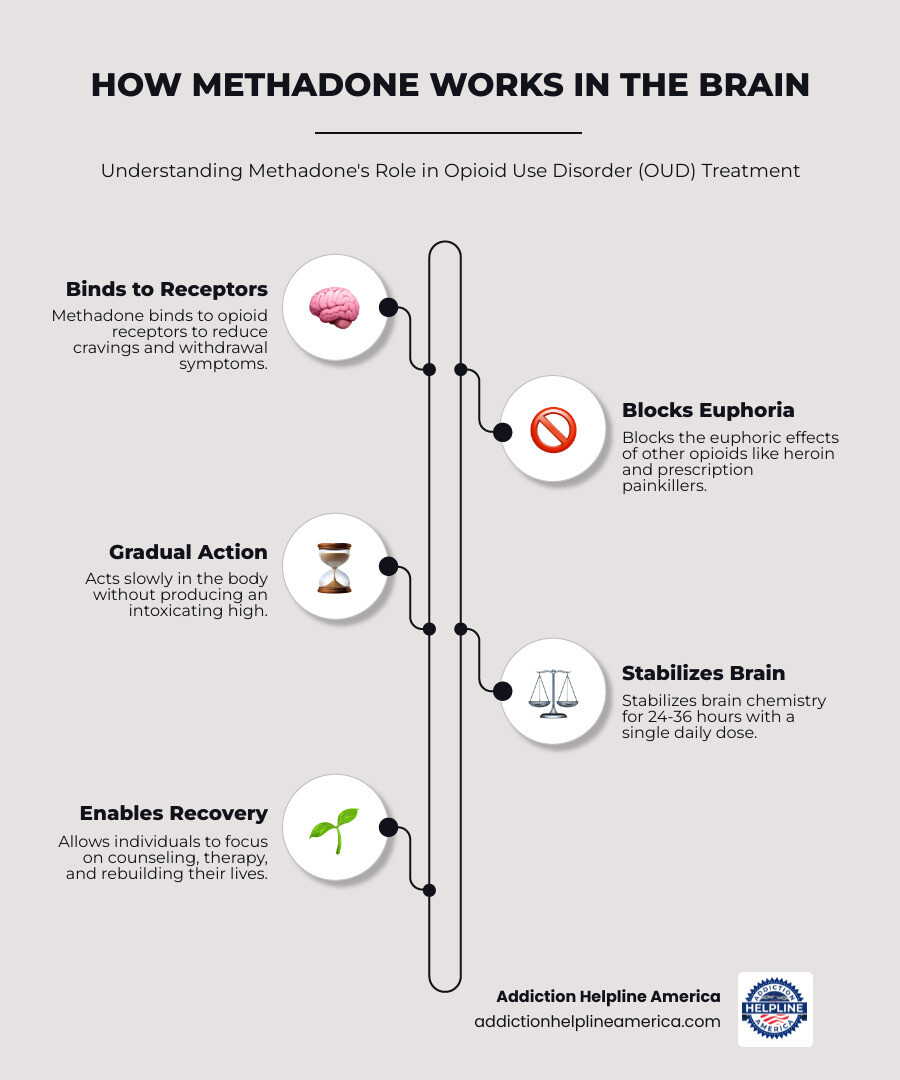
Methadone programs near me basics:
- doctors near me that prescribe methadone
- free methadone clinics near me
- methadone clinics that accept medicaid near me
Understanding Methadone and Opioid Treatment Programs (OTPs)
If you’re searching for methadone programs near me, it’s helpful to know what methadone is and how these specialized centers work. Methadone is a synthetic opioid agonist medication. It attaches to the same receptors in the brain as other opioids but does so without creating the dangerous highs and lows of addiction. Instead, it stabilizes brain chemistry, relieves withdrawal symptoms, and reduces cravings, allowing you to feel normal and focus on recovery.
Methadone for addiction treatment can only be dispensed at Opioid Treatment Programs (OTPs). These are not typical doctor’s offices; they are specialized facilities certified by the Substance Abuse and Mental Health Services Administration (SAMHSA) and registered with the Drug Enforcement Administration (DEA). This ensures they provide safe, high-quality, comprehensive care.
OTPs use a Medication-Assisted Treatment (MAT) model, which combines medication with counseling and behavioral therapies. This integrated approach addresses both the physical dependence and the psychological aspects of addiction, offering the best chance for lasting recovery.
What is a Methadone Clinic and How Does it Work?
A methadone clinic, or OTP, is a supervised environment designed to support recovery from opioid addiction. Each day, you receive your dose of methadone (usually a liquid) from a medical professional. This is called observed dosing and is a key safety feature of the treatment.
The medication is carefully dosed to achieve three main goals:
- Reduce opioid cravings: It satisfies the brain’s need for opioids without triggering an intense urge for more.
- Block euphoric effects: If a person on a stable dose uses other opioids, they won’t feel the “high,” which removes the incentive to relapse.
- Stabilize brain chemistry: As a long-acting medication (24-36 hours), a single dose prevents the painful cycle of withdrawal, allowing you to focus on rebuilding your life.
With proven stability in treatment, you may earn take-home doses, increasing flexibility and reducing clinic visits.
Services Offered Beyond Medication
Medication is just one part of the comprehensive support offered at methadone programs near me. Certified OTPs are required to provide therapeutic services, as the combination of medication and counseling is most effective.
These support services often include:
- Individual, Group, and Family Counseling: To address the root causes of addiction, develop coping skills, and repair relationships.
- Case Management: To help with practical needs like housing, employment, or legal issues.
- Medical and Vocational Services: To address neglected health problems and help you return to work or school.
- Drug Testing: To monitor progress and ensure safety.
- Social Support Referrals: To connect you with community resources like support groups or childcare.
The Methadone Treatment Process: What to Expect
Starting methadone treatment involves a structured process to help you transition safely from active use to stable recovery. The journey is typically broken into three phases.
- Induction Phase: This is the beginning. The medical team assesses your opioid use history to determine a safe starting dose. The dose is then gradually adjusted over days or weeks until it effectively eliminates withdrawal and cravings without causing sedation.
- Stabilization Phase: Once the right dose is found, you enter stabilization. With withdrawal symptoms gone, you can fully engage in counseling and other support services. This is where you begin learning new coping skills and rebuilding your life.
- Maintenance Phase: This is the long-term phase of recovery. Experts recommend at least 12 months of treatment, but many people benefit from years of maintenance. This phase focuses on sustained recovery and reintegrating into a healthy lifestyle.
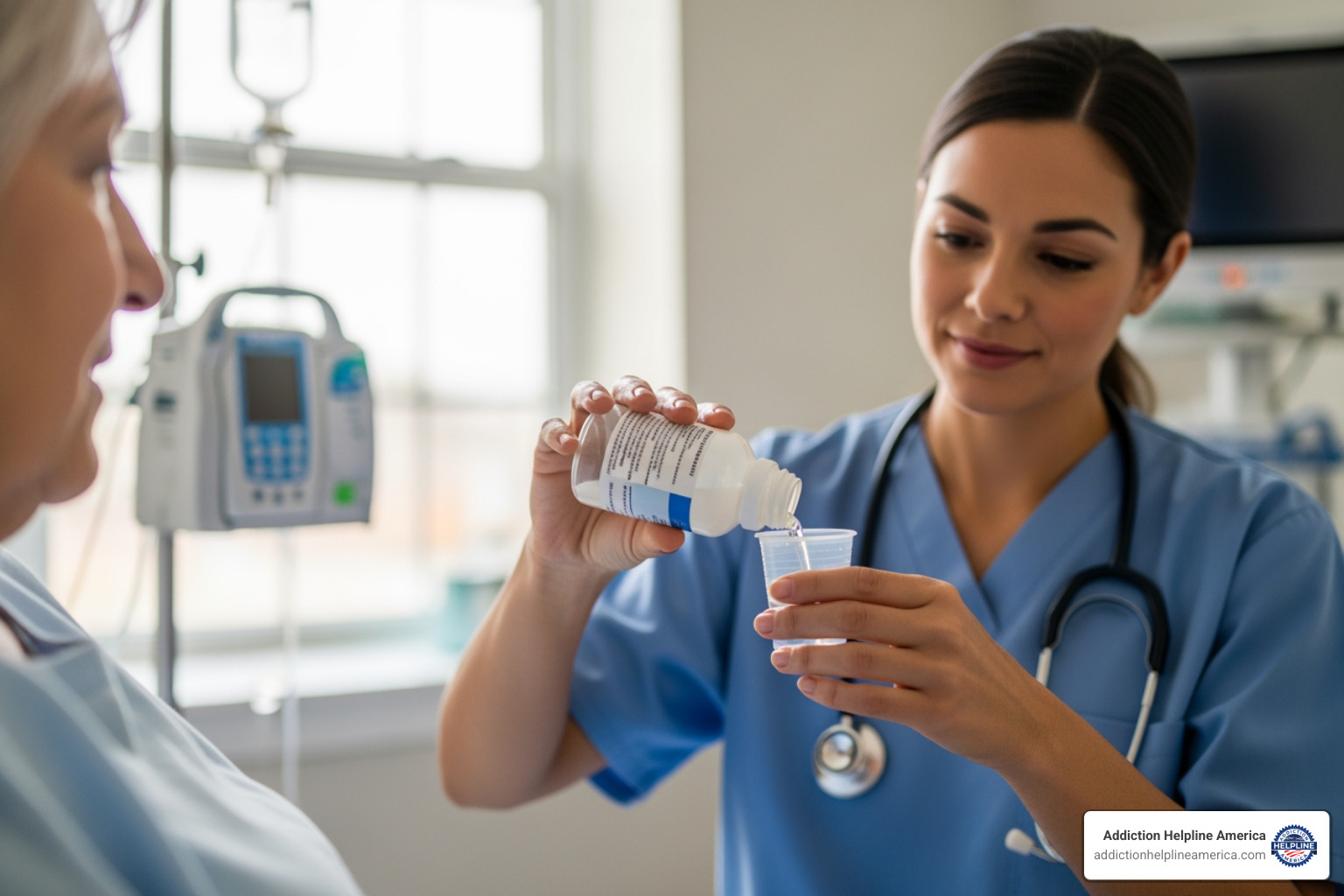
Your daily routine will initially involve visiting the clinic for observed dosing. As you demonstrate stability through consistent attendance and negative drug screens, you can earn take-home doses, which reduces the frequency of clinic visits and allows for more independence.
Eligibility, Benefits, and Risks
To qualify for methadone treatment, you generally need a formal diagnosis of opioid use disorder, be at least 18 years old, and have at least a one-year history of opioid dependence. Exceptions are often made for pregnant women, who are prioritized for immediate treatment.
The benefits are significant: studies show that methadone treatment leads to reduced illicit drug use, lower overdose rates, improved health, and better social functioning. About 75% of individuals respond well to treatment.
Like any medication, methadone has potential side effects, such as drowsiness, constipation, or sweating, which are usually manageable. More serious risks include slowed breathing, especially when mixed with alcohol or benzodiazepines. It is crucial to inform your doctor of all substances you use. While physical dependence on methadone does occur, it is a managed, therapeutic state—not the chaotic, destructive cycle of addiction.
Special Considerations for Pregnant Women
For pregnant women with OUD, methadone is the recommended standard of care. It is far safer for both mother and baby than continuing illicit drug use or attempting to withdraw. Methadone treatment protects the baby from the risks of withdrawal in the womb, such as preterm labor or fetal distress.
Babies born to mothers on methadone may experience Neonatal Abstinence Syndrome (NAS), which involves temporary and treatable withdrawal symptoms after birth. Medical staff are experienced in managing NAS. The benefits of methadone for the mother’s health and stability far outweigh the manageable risks of NAS.
Breastfeeding while on methadone is considered safe and is encouraged, as it can help reduce the severity of NAS symptoms. Pregnant women should work closely with their OTP and obstetrician, and some programs like Saint Barnabas Hospital Methadone Treatment in Bronx, NY offer specialized care.
How to Find Methadone Programs Near Me
When you’re ready to take the first step, finding methadone programs near me is a straightforward process with the right resources.
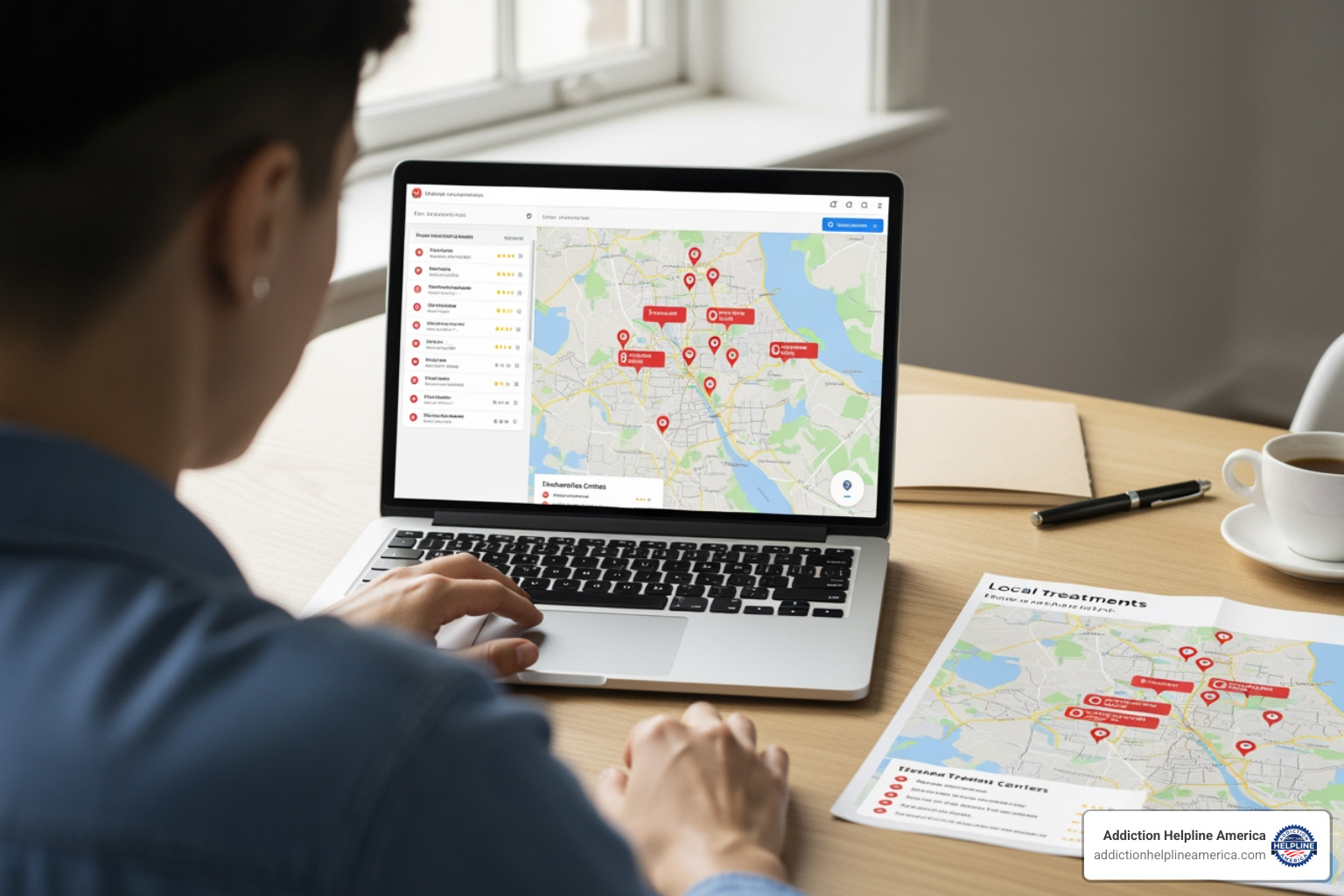
Start by using online directories, contacting your insurance provider, or asking for a physician referral. Your state’s health department website is also a reliable source for lists of licensed providers.
Using Trusted Treatment Locators
Official treatment locators connect you with certified, regulated programs that meet strict quality standards.
- SAMHSA’s Opioid Treatment Program Directory: This is the most authoritative resource. The official government-maintained tool allows you to search for federally certified OTPs by state, ensuring you find programs that comply with all regulations.
- Helplines: For immediate, personalized guidance, helplines like Addiction Helpline America offer a free and confidential way to steer your options. Our team can help you find a program, verify insurance, and answer your questions.
When searching, always look for programs certified by SAMHSA and licensed by your state. These confidential resources exist to help you find a certified Opioid Treatment Program that provides the quality care you deserve.
What to Look for in Methadone Programs Near Me
Once you have a list of potential programs, evaluate them to find the best fit. Key factors to consider include:
- Accreditation and Licensing: Ensure the program is certified by SAMHSA and licensed by your state.
- Staff Qualifications: Look for experienced, multidisciplinary teams including addiction specialists and licensed counselors.
- Range of Services: A good program offers comprehensive care, including individual and group counseling, case management, and medical support.
- Individualized Treatment Plans: Your treatment plan should be custom to your unique history and recovery goals.
- Clinic Accessibility: Convenient hours and location are important for maintaining daily attendance, especially in the beginning.
- Program Policies: Understand the rules regarding drug testing, take-home doses, and patient conduct.
A quality clinic will be transparent and answer your questions readily.
Understanding the Cost of Methadone Programs Near Me
Don’t let financial concerns stop you from seeking help. There are many ways to afford methadone treatment.
- Insurance: Most private insurance plans, as well as Medicaid and Medicare, cover methadone treatment. Call your provider to understand your specific benefits. Methadone Clinics That Accept Medicaid Near Me are available in every state.
- Sliding Scale Fees: Many OTPs offer fees based on your income and ability to pay.
- State and Federal Funding: Some clinics receive grants that allow them to offer free or low-cost treatment to eligible individuals.
- Self-Payment: If paying out of pocket, many clinics offer flexible payment plans.
At Addiction Helpline America, we can help you steer these financial questions, verify your benefits, and connect you with a program that fits your budget.
Methadone and Other OUD Medications: What to Know
Methadone is a cornerstone of Medication-Assisted Treatment (MAT), but it’s one of three FDA-approved medications for opioid use disorder. Understanding how it compares to buprenorphine and naltrexone can help you and your doctor decide on the best path for you.
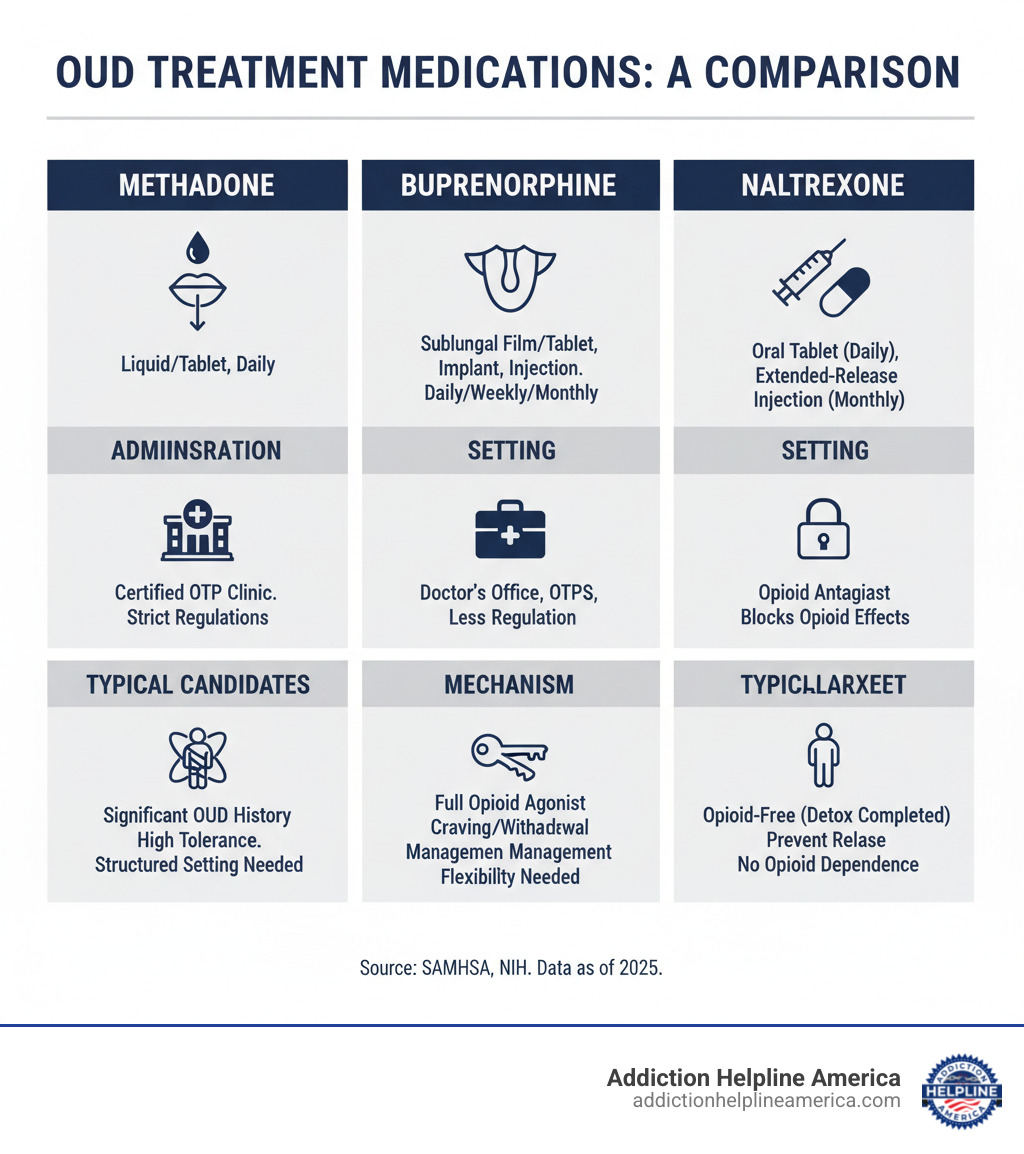
-
Methadone:
- Mechanism: A full opioid agonist that fully activates opioid receptors to eliminate withdrawal and cravings.
- Setting: Must be dispensed daily at a certified Opioid Treatment Program (OTP).
- Best For: Individuals with a long history of severe OUD or those who need a highly structured environment.
-
Buprenorphine (e.g., Suboxone):
- Mechanism: A partial opioid agonist that activates receptors enough to reduce cravings but has a “ceiling effect” that lowers overdose risk.
- Setting: Can be prescribed by a qualified physician in an office setting for more flexible take-home treatment.
- Best For: Individuals with moderate to severe OUD who can manage a less restrictive treatment model.
-
Naltrexone (Vivitrol):
- Mechanism: An opioid antagonist that completely blocks opioid receptors, preventing any “high” if opioids are used. It does not relieve cravings.
- Setting: Can be prescribed by any licensed physician as a daily pill or monthly injection.
- Best For: Highly motivated individuals who have already completed detox and are committed to abstinence.
The choice of medication is a clinical decision made with a provider, based on your medical history, needs, and lifestyle.
Frequently Asked Questions about Methadone Treatment
Exploring methadone programs near me often brings up important questions. Here are answers to some of the most common concerns.
How long do you have to be on a methadone program?
Medical experts recommend a minimum of 12 months, but there is no set timeline. Many people benefit from long-term maintenance treatment for several years. Opioid use disorder is a chronic condition, and methadone provides the stability needed for the brain to heal. The decision to taper off the medication should be a gradual process made with your medical team to prevent withdrawal and relapse. The right duration is whatever supports your sustained recovery.
Is methadone just replacing one addiction with another?
No, this is a common misconception. Addiction is characterized by compulsive drug-seeking and a chaotic cycle of highs and lows. Medically supervised methadone treatment is the opposite. It provides a stable, therapeutic dose that does not produce a “high.” It normalizes brain chemistry, which allows you to stop the destructive behaviors of addiction and focus on counseling, work, and rebuilding your life. While you do develop a physical dependence on methadone (like a diabetic on insulin), it is a managed medical condition, not an active addiction.
What happens if I miss a day at the methadone clinic?
Consistency is crucial, as missing a dose can trigger withdrawal symptoms and cravings. If you know you are going to miss a day or have already missed one, contact your clinic immediately. They are there to help you find a solution, not to punish you. Each clinic has its own policy, but open communication is key. Repeatedly missing doses can affect your progress and eligibility for take-home medication. If you face challenges with transportation or scheduling, talk to your counselor. They can help you find resources to stay on track.
Take the First Step Towards Recovery Today
By searching for methadone programs near me, you’ve already taken a courageous step toward a healthier future. Recovery from opioid addiction is possible, and you don’t have to do it alone.

For nearly 50 years, methadone has been a proven tool that, when combined with counseling and support, gives people the stability to rebuild their lives. It quiets cravings and prevents withdrawal, creating the space you need to heal, grow, and reconnect with what matters.
Finding the right program is the crucial first step. That’s where Addiction Helpline America comes in. We offer free, confidential, and personalized guidance to connect you with a certified treatment center that fits your unique needs. We cut through the confusion of insurance, cost, and location to help you find help.
Recovery starts with one decision to reach out. Find a drug rehab program near you today, and let us walk this journey with you. You deserve a life free from addiction, and we’re ready to help you get there.
Our helpline is 100%
free & confidential
If you or someone you care about is struggling with drug or alcohol addiction, we can help you explore your recovery options. Don’t face this challenge alone—seek support from us.
Programs
Resources
Will my insurance
cover addiction
treatment?
We're ready to help
Find the best
drug or alcohol treatment
center
Are you or a loved one struggling with addiction? Call today to speak to a treatment expert.

